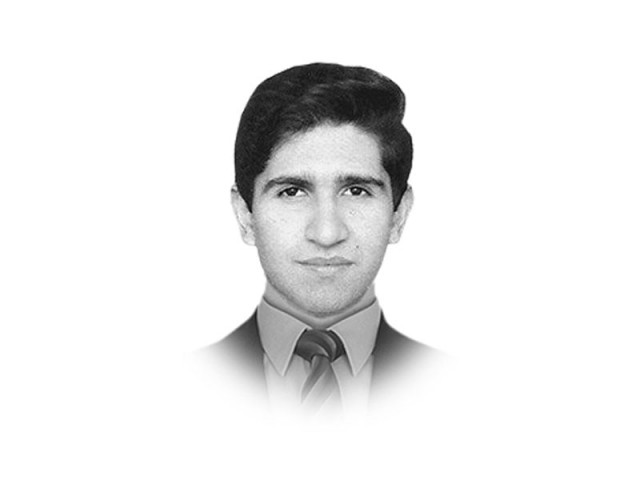Corruption’s permeation
Corruption feeds into loop of poverty, increasing social distributive injustice, making it difficult for poor to rise.

The writer is a PhD in conflict studies and an independent security analyst. He has also taught at the University of Central Lancashire, UK
Pakistan consistently ranks amongst the highest in the world in terms of successive public corruption in successive Transparency International reports. Many pillars of the criminal justice system, particularly the police, tend to figure quite high at the top and are perceived as amongst the most corrupt departments. To be caught in the middle of courts and police stations has become a running joke in Pakistan. Illicit money is a major motivational factor for the police, and courts can be used as channels to ensure many disputes end in deadlock; these result in never-ending litigation, while defendants languish in police cells. Local leaders, who deploy patronage to resolve disputes outside the legal system, or help their constituents to negotiate the complex system, gain political stature and earn gratitude which they can trade for electoral loyalty.
This corrupt environment fosters injustice. Justice is a basic social need, but beyond the remedial mechanics of justice on society, it is very much a powerful human psychological need — perhaps, a basic one. Injustice, or lack of distributive social justice, frustrates many basic needs, such as the need for a positive social identity; when you treat a person with less respect, he will feel less worthy as part of that social set-up or vice versa. Justice increases your sense of effectiveness and control in a society, just as injustice decreases it. Simply put, prevailing injustice will not allow a person's actions to bring about deserved outcomes, which will breed frustration and a feeling of being a misfit within a social group or a system. Corruption is one of the biggest drivers of injustice in our society at the moment.
Corruption has a ripple effect on many things, even violence in society. When a society establishes itself on norms of 'have and have-nots', and endemic corruption is taken more or less as granted, there is acceptance of other norms as well. This leads to, and indeed has resulted in a stereotyping of, the less privileged in Pakistan. This stereotyping classifies the poor and the less privileged, or the less educated or landed, and has lent a mimetic quality to the very Pakistani culture of differentiating ‘them’ from ‘us’. This black and white stratification of Pakistani society encourages proneness to using violence against the have nots. For instance, the Society for the Protection of the Rights of the Child (SPARC) reported in 2012 that there had been, at least, 17 cases of violence against domestic child workers in Lahore since 2010. There may be hundreds more which go unreported. This is one of the polycentric effects of corruption leading to ill-deserved gains, leading to gaps in social justice, which feeds into the loop of violence and biases in society.
This may seem like blaming corruption for all the ills of society. Arguably, this may or may not be true. Poverty by itself is a major determinant of many ills in society, and not all poverty, or even the majority of it, stems from corruption alone. However, as a social scientist, I would argue that corruption feeds into a causal loop of poverty by increasing social distributive injustice, making it very difficult for a poor person without means to rise to a deserved position in life. Thus, corruption has its major effect not on poverty, but to the decreased prevalence or even absence of deserved rewards for poor people, who cannot pay easement or speed money to get things done. This makes it more difficult for them to gain positions of social and individual acceptability, thereby relegating them to what society perceives as lesser strata. This increases alienation and may lead to proneness to radicalise or even violence. Taking corruption for granted will have increasing deleterious repercussions for us unless we understand how broad the ramifications of this social evil are.
Published in The Express Tribune, April 14th, 2013.















COMMENTS
Comments are moderated and generally will be posted if they are on-topic and not abusive.
For more information, please see our Comments FAQ